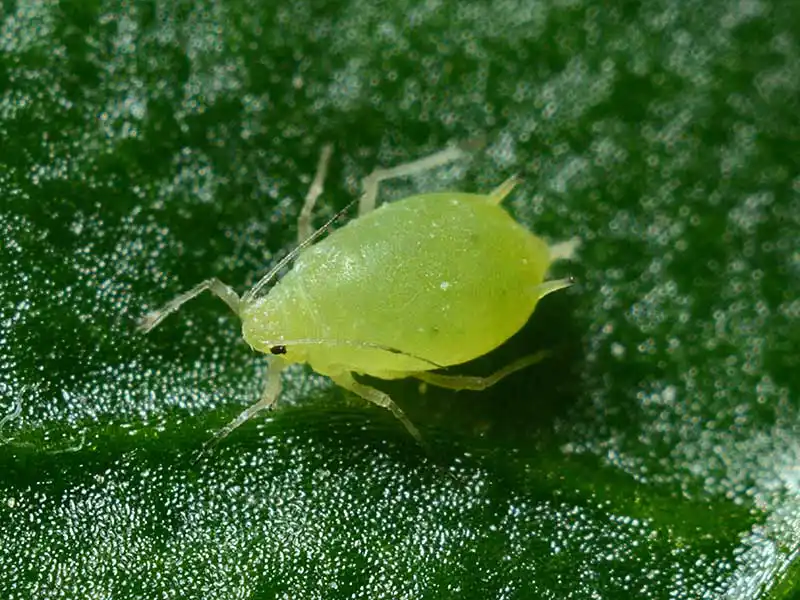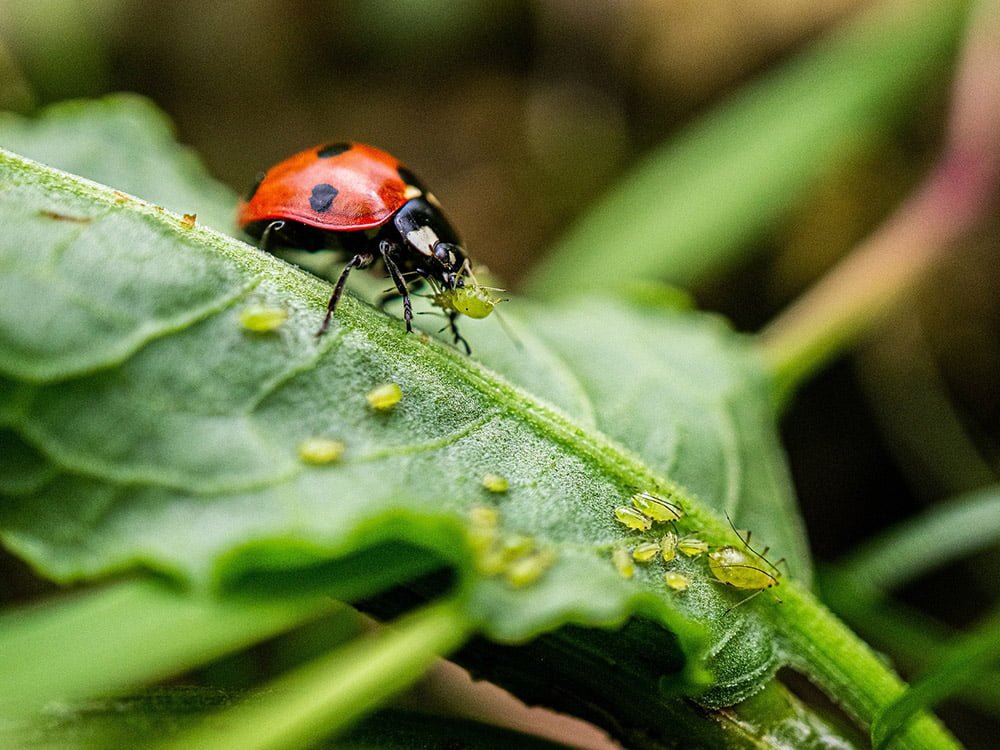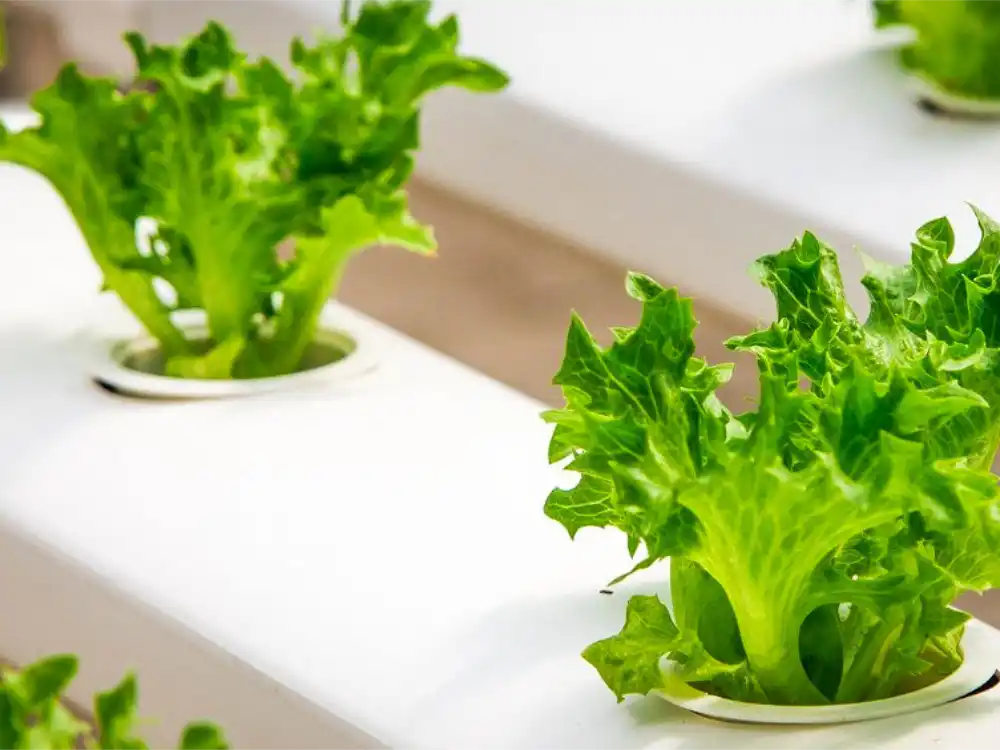Hello there, gardening friend! You’ve probably heard about organic pest control before, and now you’re wondering how to apply it to your beloved pepper plants. Organic pest control for peppers is more than just a buzzword; it’s a practical, eco-friendly approach to keeping your garden free from damaging pests.
Why Organic Pest Control for Peppers is the Real Deal
When you hear the term ‘organic,’ you might think of food without synthetic additives or clothes made from natural fibers. But have you ever considered what ‘organic’ means in the context of pest control?
If not, let me tell you – it’s a game-changer. Organic pest control for peppers could be the missing link in your gardening journey, and here’s why.
Reduced Chemical Use
Organic pest control methods reduce the risk of harmful chemical exposure for both your plants and the environment. Traditional pesticides often contain substances that can be harmful to humans, animals, and beneficial insects.
By switching to organic methods, you’re ensuring a safer environment for everyone involved, from the birds in the trees to the worms in the soil.
Harmony with Nature
Organic pest control works in harmony with nature, rather than against it. It’s about understanding and manipulating the garden ecosystem to favor your plants.
This could involve introducing beneficial insects, planting companion plants, or using natural pesticides. It’s a holistic approach that considers the bigger picture, rather than just a quick fix.
Prevent Super Bugs
Pests can become resistant to synthetic pesticides over time, which can lead to even bigger pest problems. It’s a bit like taking antibiotics – if you use them too often, the bacteria can become resistant, and the medicine loses its effectiveness.
The same principle applies to pests and pesticides. Organic pest control methods, on the other hand, are less likely to lead to resistance because they involve a variety of tactics and rely on natural processes.
Cost Effective
Organic pest control is often more cost-effective in the long run. While some organic methods might require a bit more effort upfront, they can save you money on expensive pesticides in the future. Plus, healthier plants are more productive, which means more delicious peppers for you to enjoy!
Meet the Usual Suspects: Common Pests for Pepper Plants

Let’s identify the culprits that could be bugging your pepper plants (pun intended!).
| Pest | Description | Damage | Organic Control Methods |
|---|---|---|---|
| Aphids | Small, soft-bodied insects that can be green, yellow, black, or red. Often found on the undersides of leaves. | They suck sap from the plant, causing leaves to curl and yellow. They also secrete a sticky substance called honeydew, which can lead to sooty mold. | Introduce beneficial insects like ladybugs and lacewings. Use insecticidal soap or neem oil. |
| Cutworms | Caterpillars that are gray or brown and curl up when disturbed. Active at night. | They cut off young plants at the base and eat holes in pepper fruits. | Handpick them off plants at night. Use beneficial nematodes or diatomaceous earth. |
| Leafminers | Tiny, black and yellow flies. Their larvae are small, green worms. | Larvae tunnel through leaves, creating white, winding trails. This can stunt plant growth. | Remove and destroy infested leaves. Use neem oil. |
| Spider Mites | Tiny, spider-like pests, often red, yellow, or green. They’re usually found on the undersides of leaves. | They suck sap from the plant, causing leaves to yellow and drop off. | Introduce beneficial insects like ladybugs and predatory mites. Use insecticidal soap or neem oil. |
| Whiteflies | Tiny, white, moth-like insects that congregate on the undersides of leaves. | They suck sap from the plant, leading to yellowing and curling of leaves. They also secrete honeydew, leading to sooty mold. | Use yellow sticky traps. Introduce beneficial insects like ladybugs and lacewings. Use insecticidal soap or neem oil. |
Even when starting pepper plants indoors, you could still end up with some of these pests. Be diligent and check your young plants regularly, they’re even more susceptible to pepper pests.
Let’s Talk Tactics: Organic Pest Control Methods

Now that we know who we’re dealing with, let’s explore the arsenal of organic pest control for peppers.
Companion Planting: Nature’s Own Pest Deterrent
Companion planting is a bit like creating a harmonious community in your garden. It’s about choosing plants that support each other, either by repelling pests, enhancing growth, or even improving flavor.
When it comes to organic pest control for peppers, certain plants are just the right kind of friends your peppers need.
Basil
A culinary favorite, basil is a great companion plant for your peppers. It’s not just because they complement each other in your pasta sauce, but also because basil helps repel thrips and aphids.
These pests can cause significant damage to pepper plants by sucking sap and spreading diseases. The strong scent of basil confuses these pests, keeping them away from your precious peppers.
Marigolds
Another fantastic companion plant. Their bright flowers are not only a delight to see in any garden, but they also have a secret superpower. Marigolds emit a strong aroma that nematodes, tiny soil-dwelling worms, find off-putting.
These worms can damage the roots of pepper plants, so having marigolds around is like having a natural nematode shield.
Tomatoes
Great companions for pepper plants. They help deter pepper pests like leafhoppers and spider mites. Plus, peppers and tomatoes have similar growing conditions, so they can happily coexist in your garden.
Other Herbs
Companion planting also extends to incorporating plants that attract beneficial insects. Remember, in the organic pest control world, not all bugs are bad. Some, like ladybugs and lacewings, are predators to harmful pests.
Plants such as dill, fennel, and parsley attract these beneficial insects, offering a two-fold advantage.
So, in planning your garden layout, consider these beneficial relationships. It’s a natural and effective way to practice organic pest control for peppers. Plus, it can lead to a more vibrant, diverse garden. It’s a win-win situation!
Biological Control: Enlisting the Garden Troops

When it comes to organic pest control for peppers, sometimes you’ve got to enlist a little help from the troops – the good bugs and other natural predators. Biological control is essentially about boosting the population of these beneficial critters in your garden to manage the pests.
Ladybugs
First up in our garden army are the ladybugs. Don’t let their cute appearance fool you; these little ladies are ruthless when it comes to aphids, one of the most common pepper pests.
Ladybugs are natural predators of aphids and can consume hundreds of them in their lifetime.
By introducing ladybugs to your garden, you’re effectively setting up a bug buffet that benefits your peppers!
Praying Mantis
Another fascinating ally is the mighty praying mantis. This intriguing insect is an excellent generalist predator, meaning it doesn’t discriminate much when it comes to its meals.
It’ll happily munch on a wide variety of pests, including aphids, caterpillars, and beetles. Having a few mantises around is like having your own garden patrol.
Parasitic Wasps
Don’t forget about the birds and the bees – and by bees, we mean parasitic wasps! These are not the regular wasps that might ruin your picnic. Parasitic wasps lay their eggs inside pests like caterpillars and aphids.
When the eggs hatch, the larvae consume the host, effectively killing the pest. It might sound a bit grim, but it’s a highly effective form of pest control!
Birds
But it’s not just about bugs fighting bugs. Birds can play a crucial role too. Many bird species feed on common garden pests. Installing a bird feeder or a bird bath can attract these feathered friends to your garden.
The key to successful biological control is understanding the balance of nature. You want to create a garden ecosystem that attracts and supports these beneficial creatures.
It’s a bit like building your own garden Avengers team to combat the forces that threaten your peppers. So, for effective organic pest control for peppers, consider recruiting these garden troops!
Natural Pesticides: Mother Nature’s Bug Spray
When it comes to organic pest control for peppers, Mother Nature offers some powerful weapons that are both effective and eco-friendly. Natural pesticides are derived from plants, minerals, or other natural sources, and they can help keep your peppers pest-free without resorting to harsh chemicals.
Neem Oil
No products found.
First in our line-up of natural pesticides is neem oil. Extracted from the seeds of the neem tree, this oil is a formidable foe for many garden pests. When sprayed on plants, it disrupts the life cycle of pests like aphids, mites, and whiteflies, effectively reducing their population over time. It’s also a fantastic fungicide, helping protect your plants from various diseases.
Diatomaceous Earth
No products found.
Another valuable ally in the organic pest control arsenal is diatomaceous earth. Despite the fancy name, it’s simply a type of powder made from tiny fossilized aquatic organisms. It’s non-toxic to humans and pets, but it’s lethal for many pests. When bugs come into contact with diatomaceous earth, it damages their exoskeleton, causing them to dehydrate and die. It’s like setting up a protective barrier around your pepper plants.
Pyrethrum
No products found.
Derived from chrysanthemum flowers, another natural pesticide you might consider. It affects the nervous system of insects, rapidly paralyzing them upon contact. Pyrethrum-based insecticides are effective against a wide range of pests, including aphids, beetles, leafhoppers, and spider mites.
Insecticidal Soap
No products found.
A simple but powerful weapon against soft-bodied insects like aphids, mites, and whiteflies. It works by breaking down the protective outer layer of these pests, causing them to dehydrate and die.
The best part is you can easily make insecticidal soap at home with just a few household ingredients.
Remember, even though these pesticides are natural, they should be used responsibly. Always follow the recommended application rates and methods. And keep in mind that some of these can still affect beneficial insects, so try to target application areas as specifically as possible.
Home Remedies: DIY Solutions for Pest Control
Who said pest control solutions always have to come from a store? Sometimes, the most effective remedies are right in your kitchen pantry. Let’s dive into some DIY recipes you can concoct for organic pest control for peppers.
Garlic Spray
This natural insecticide is easy to make and can deter a host of pests. To make it, you need to blend two whole bulbs (not cloves!) of garlic with a small amount of water. Strain the mixture and add enough water to make a gallon of garlic solution. Apply this to your pepper plants for a potent, vampire-approved pest deterrent.
Hot Pepper Spray
Peppers protecting peppers, how cool is that? To make it, blend two cups of hot peppers (the hotter, the better) with a cup of water. Once it’s well-blended, let the mixture sit overnight. In the morning, strain the mixture, add enough water to make a gallon, and voila – you’ve got a spicy spray that pests will hate!
Household Vinegar
You can also try a vinegar solution. Vinegar is a great natural fungicide and can help manage pests like aphids and ants. Mix one part vinegar to one part water and spray it on affected plants. But be careful not to overdo it – too much vinegar can harm your plants.
Liquid Soap
Another simple yet effective home remedy is a soap and water spray. Mix a few tablespoons of mild, non-detergent soap with a gallon of water and use this to spray your plants. This simple solution can help control many soft-bodied pests like aphids and whiteflies.
Remember, while these home remedies can be highly effective, they should be used with care. Always test any spray on a small portion of the plant first to ensure it doesn’t damage the foliage.
Also, apply these solutions in the early morning or late evening to prevent the sun from causing any potential harm to your plants.
Preemptive Strikes: Preventive Measures for Pest Control in Peppers
Remember the saying, “An ounce of prevention is worth a pound of cure”? Well, that certainly applies to organic pest control for peppers. Regular inspection is key. The earlier you spot a potential pest problem, the easier it will be to handle.
Keep your plants healthy, too. A strong plant can better withstand an attack than a weak one. Plus, pests are often attracted to stressed plants, so proper watering and fertilization practices can go a long way in preventing an infestation.
And let’s not forget about the power of diversity. Planting a variety of crops can deter pests, as many pests prefer specific host plants. So, mix it up a little in your garden!
Organic Pest Control for Peppers in Action: A Case Study
Let’s take a moment to talk about my friend, Lucy. She’s a pepper lover like you and me, and she was having a hard time with aphids. It seemed like no matter what she did, they kept coming back.
She decided to try organic pest control for peppers. She introduced some ladybugs to her garden and planted basil around her pepper plants. And guess what? It worked!
The ladybugs took care of the aphids, and the basil seemed to deter any new ones from moving in. It was a win-win situation for Lucy and her peppers!
Wrapping Up: Embrace the Power of Organic Pest Control for Peppers
So there you have it, my gardening friends! Organic pest control for peppers is a viable, eco-friendly way to keep your garden pest-free. It’s about working with nature, not against it. It’s about creating a balanced ecosystem where your pepper plants can thrive.
Now, I’d love to hear from you. Have you tried any of these methods in your garden? Or maybe you have a tip or two to share? Let’s get the conversation going in the comments. Together, we can make organic pest control for peppers the new norm. Happy gardening!
FAQ: Organic Pest Control for Peppers
Is neem oil OK for pepper plants?
Yes, neem oil is safe for pepper plants. It’s an organic pesticide that helps control many pests, from aphids to mites, without damaging the plant when used properly.
Can you spray vinegar on pepper plants for bugs?
Vinegar can deter certain pests, but it should be used cautiously. Too much can harm your plants. Always dilute it with water and avoid over-spraying.
Can I spray my pepper plants with soapy water?
Absolutely! A mild soapy water solution can be effective against soft-bodied pests like aphids and whiteflies. Use a mild, non-detergent soap to avoid plant damage.
When should you not use neem oil?
Avoid using neem oil in extreme temperatures, as it can cause plant stress. Also, don’t apply it when beneficial insects, like bees, are actively foraging to prevent harm.
Can you spray hydrogen peroxide on pepper plants?
Yes, a diluted hydrogen peroxide solution can help manage fungal diseases on pepper plants. However, it’s potent, so use it sparingly and carefully to avoid leaf burn. Test on a small area first before spraying the entire plant.


